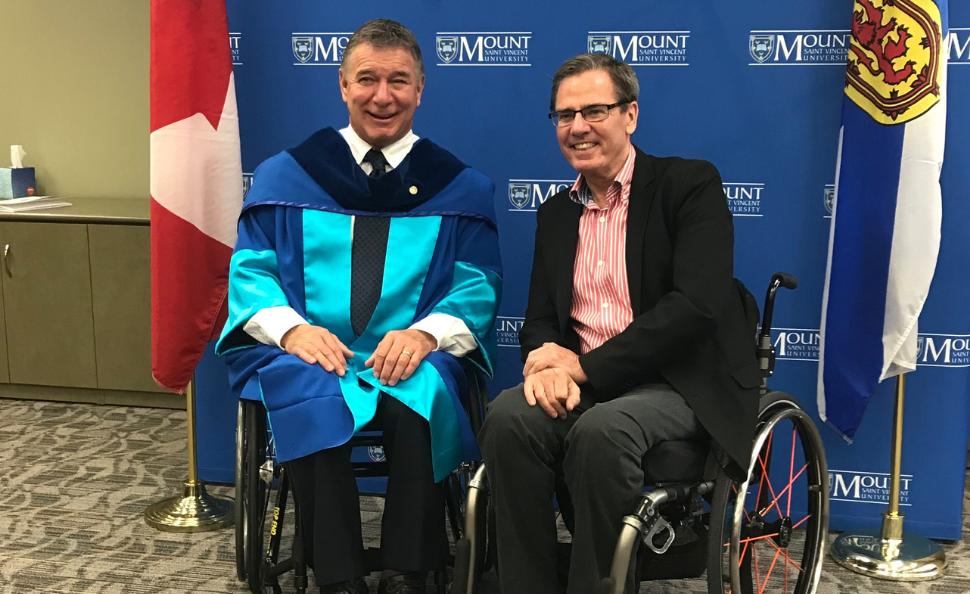Gerry Post became paralyzed from the waist down six years ago after emergency heart surgery. Since recovering, the former city planner has become an activist for disability rights, including successfully suing the Nova Scotia government for not providing mandatory accessible restaurant bathrooms. Today, Post is the inaugural executive director of the province’s Accessibility Directorate, and in charge of helping to implement accessibility changes, including the ones he sued the province to bring about. He spoke with Lezlie Lowe.
Lezlie Lowe: One in five Canadians has a disability — how do we get to a place where access is no longer a battle?
Gerry Post: The most effective way to get action is to embed this notion of thinking about accessibility into the curriculum in universities, so that planners, architects, HR professionals, IT professionals — when they come out, they have that lens built in.
Most people in Nova Scotia know someone that has a disability of some sort. And it’s not just people with mobility issues — it’s sight, it’s hearing, it’s cognitive issues, it’s intellectual disabilities. So, I think a lot of people relate pretty quickly, because they can relate to someone in their family or an associate.
LL: What have you learned since becoming an activist?
GP: I have learned which buttons to push to get action, and I have learned how to connect the dots, because nothing works in isolation. When you bring those two elements together, things can happen very, very quickly.
More on Broadview: What not to say to a parent of a child with a disability
LL: What motivated your human rights tribunal?
GP: Taking the government to court was a group initiative. Our human rights law is the only social justice safety net for minorities and we cannot afford for this net to be removed — the disabled rights movement would come crashing down. In Canada, approximately 50 percent of human rights complaints are from the disabled community.
LL: How does it feel working for the government you sued?
GP: What we’re trying to do right now is switch things into more of a collaborative process with the government and the community. I’ve only been in this chair for six years. But I have friends in the disability community who’ve been fighting government for 60, 70 years. It’s difficult to come out of that. Collaboration only goes so far as the trust goes.
LL: How do you stay positive and motivated?
GP: I’m privileged in so many different ways. I give a lecture now: advocacy as therapy. When I was in rehab? I have friends who are social workers and they said: ‘Well, Gerry, you’re going to go into this deep depression and all of this.’ And I started reading up on it. There’s a cycle that you go through. But I haven’t been to those depths. Not that I don’t get frustrated. But I basically crossed that chasm when I was in the rehab centre, because of helping others.
LL: A challenge…:
GP: Putting your pants on in a chair — you ever tried to do that? Give it a try tomorrow morning. You sit in a chair and you try to put your pants on. And every morning you’ll think of me!
A shorter version of this interview was originally featured in Broadview’s October 2019 edition with the title “Gerry Post.” To read more of Broadview’s award-winning content, subscribe to the magazine today.


Comments